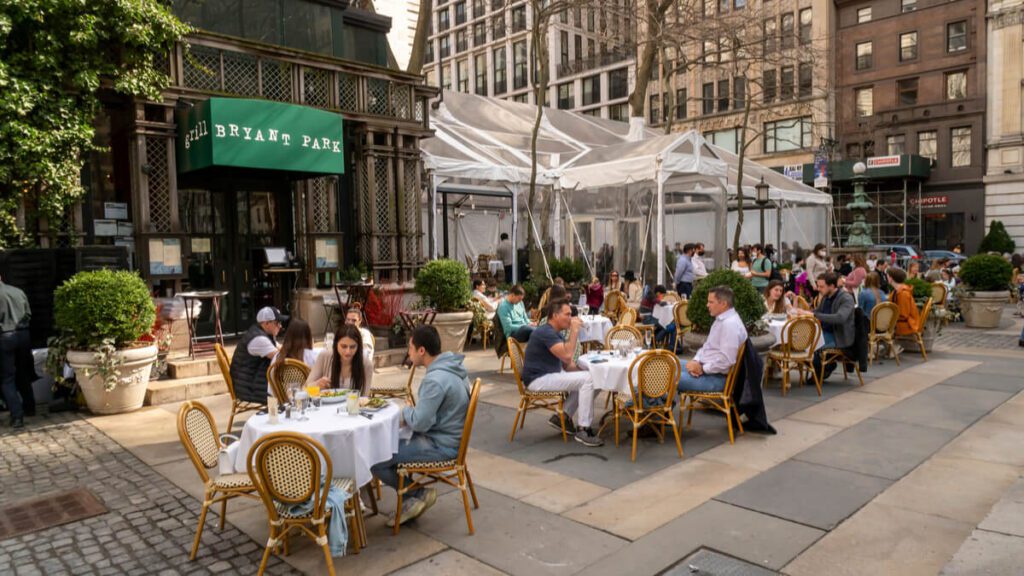
IBM’s consumer survey released Thursday adds to the growing amount of data showing optimism as the world slowly emerges from the pandemic. The study shows that global consumer confidence is high, “with more than half of respondents surveyed saying that they expect COVID-19 vaccines to keep them protected,” the company said.
According to IBM’s study findings prepared by the company’s Institute for Business Value (IBV), respondents surveyed are mostly assured in the safety, effectiveness, and distribution of the COVID-19 vaccines and indicate a desire to return to ‘normalcy’ after being vaccinated.
But different quarantine and masking rules, personal preferences, and social norms formed during the last year means that key industries like retail, travel and transportation may need to provide more seamless, personalized marketing and client experiences, to help remain competitive and successfully engage customers, the company noted.
“Habits formed during the COVID-19 pandemic have raised consumers’ expectations of digital engagement, especially in service industries like retail, travel & transportation,” said Jesus Mantas, senior managing partner, IBM Global Business Services.
“As we anticipate the ‘post-COVID-19 pandemic normal,’ businesses should accelerate their digital evolution with AI and Cloud-based solutions to help remain competitive. Investing in hybrid physical and digital experiences can help provide a more personalized experience.”
The study of more than 15,000 adults surveyed globally, found most people are confident in the safety, effectiveness, and distribution of COVID-19 vaccines, and more than half expect the vaccine to keep them protected.
Economic progress can happen gradually, however, as most respondents surveyed indicated that vaccination levels will need to exceed 70 percent for them to feel comfortable returning to life as it was before the pandemic, the study cautioned.
If current vaccine rollout rates continue – which have been highly flawed in some regions – the study purports that most people may not regain pre-pandemic comfort levels until well into 2022. Amidst this uncertainty, consumers are rethinking the way they want to work, socialize, travel, and shop, according to the study.
Most global consumers surveyed are ready to return to in-store shopping once vaccinated
According to the study, the tides may be turning for the ailing retail industry, with global consumers surveyed indicating a strong desire, once they are vaccinated, to return to malls and shopping centers.
While many surveyed consumers may not abandon the online shopping options, they have become accustomed to using during the COVID-19 pandemic – with at least one in five respondents surveyed stating that they plan to continue shopping primarily online – once vaccinated, they expect to buy items in-store much more often.
With convenience indicated as the main reason global consumers surveyed continue to shop online, followed by value and the wide variety of products available online, to lure consumers back to physical stores, retailers can look to in-store promotions and local products.
In-store promotions were the top factor that could drive consumers to shop in a physical store, especially for Gen X (54 percent surveyed) and Boomers (52 percent surveyed). Additionally, local products that are not available online, such as small batch food products and hand-made apparel, may attract nearly 50 percent of surveyed Millennials, Gen X and Boomers, to shop in person.
Potential Recovery of the Travel Industry
While consumer travel has yet to rebound, there are promising signs on the horizon.
The study showed plane travel may see an uptick in demand, with 30 percent of people planning to fly more often—though this is offset by the 23 percent of respondents surveyed that plan to fly less.
The study found that roughly 1.5 times more vaccinated consumers surveyed expect to take an overnight trip in the next six months. Still, a sizeable subset of the population plans to stay home indefinitely, with roughly one in four surveyed consumers saying that they do not plan to travel in 2021, even after they receive the COVID-19 vaccines.
The vaccine may also reinvigorate professional travel, increasing the number of respondents comfortable travelling for business two to four times in most countries.
However, older business travelers surveyed are less confident.
Only eight percent of respondents surveyed over 55 are comfortable traveling for business without a COVID-19 vaccine, and just 25 percent are comfortable after they are vaccinated.
The study showed personal automobile usage continues its prominence, both during the pandemic period and after people receive the vaccination. While 10 percent of respondents surveyed plan to use a personal vehicle less often after getting the shot, 47 percent surveyed say they will use it more.
Generation Z respondents surveyed are exceptions to the findings
Post-COVID-19 vaccine outlook varies widely across surveyed consumers by generation, but in several categories, Generation Z respondents surveyed (people aged 18-24), especially hard hit by the COVID-19 pandemic, tended to be outliers.
Most Gen Z respondents surveyed want to spend time with people outside of their households once they get the shot. 27 percent of Gen Z surveyed said they will increase outside interaction, compared to 19 percent of Gen X surveyed and only 16 percent of those surveyed over 55 years of age.
On average, 60 percent of Gen Z respondents surveyed plan to visit venues such as restaurants and bars and salons once vaccinated, compared with 71 percent of Millennials surveyed and 69 percent of Gen X respondents surveyed.
This appears to be the continuation of a trend, as Gen Z surveyed also reported visiting venues less frequently than those in other age groups during the COVID-19 pandemic.
Inside Telecom provides you with an extensive list of content covering all aspects of the tech industry. Keep an eye on our Community section to stay informed and up-to-date with our daily articles.